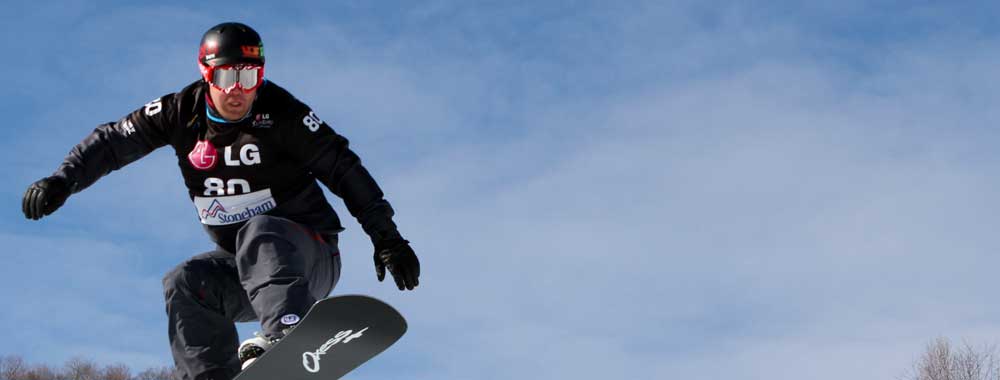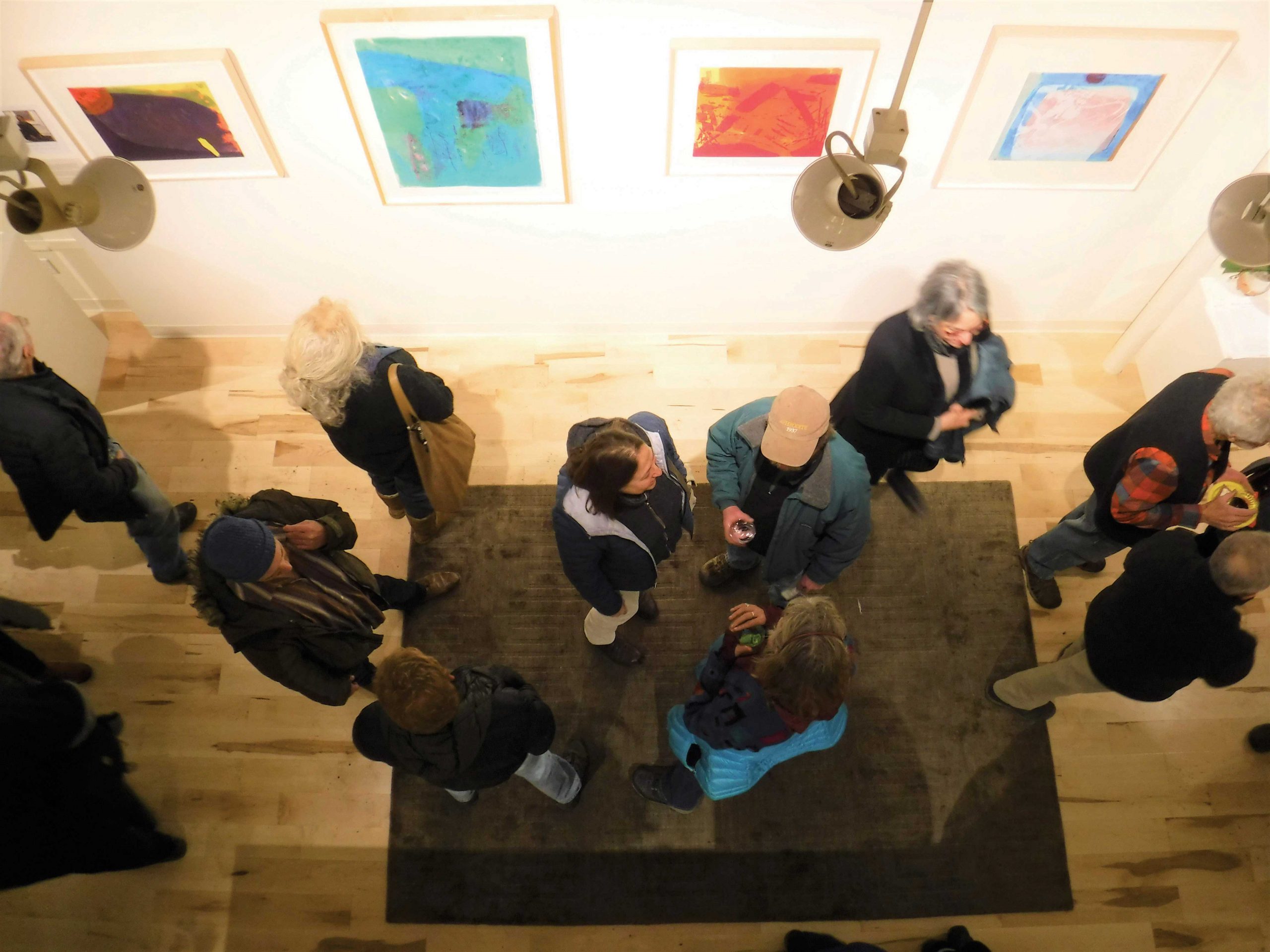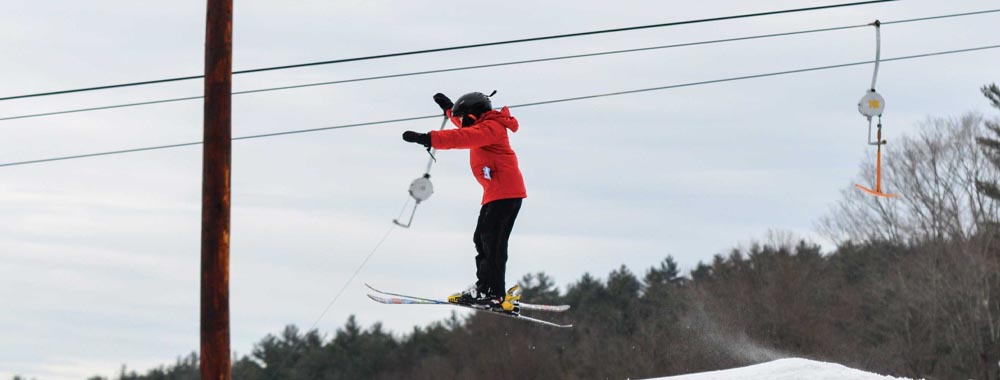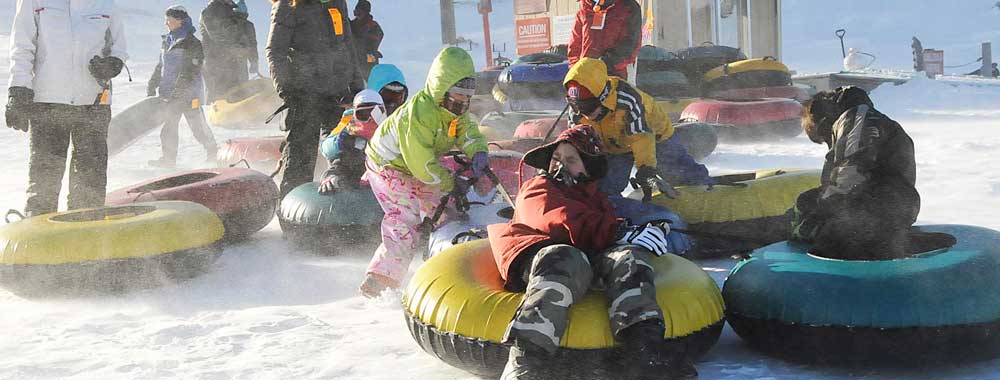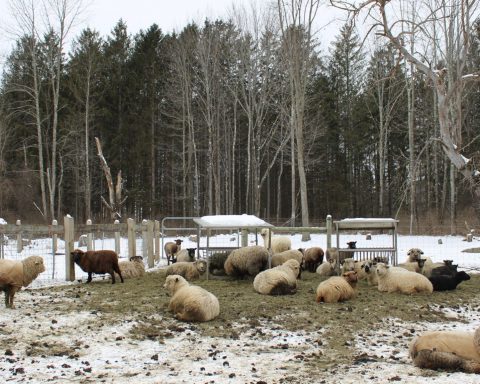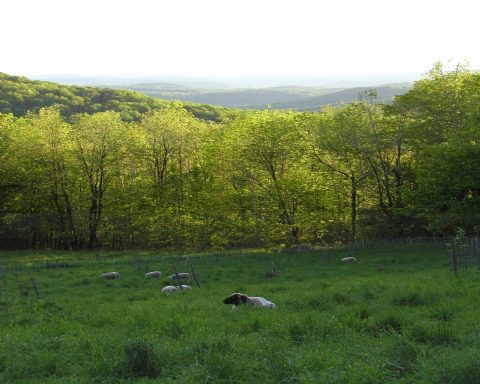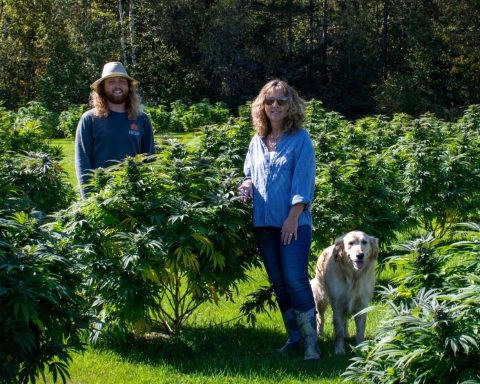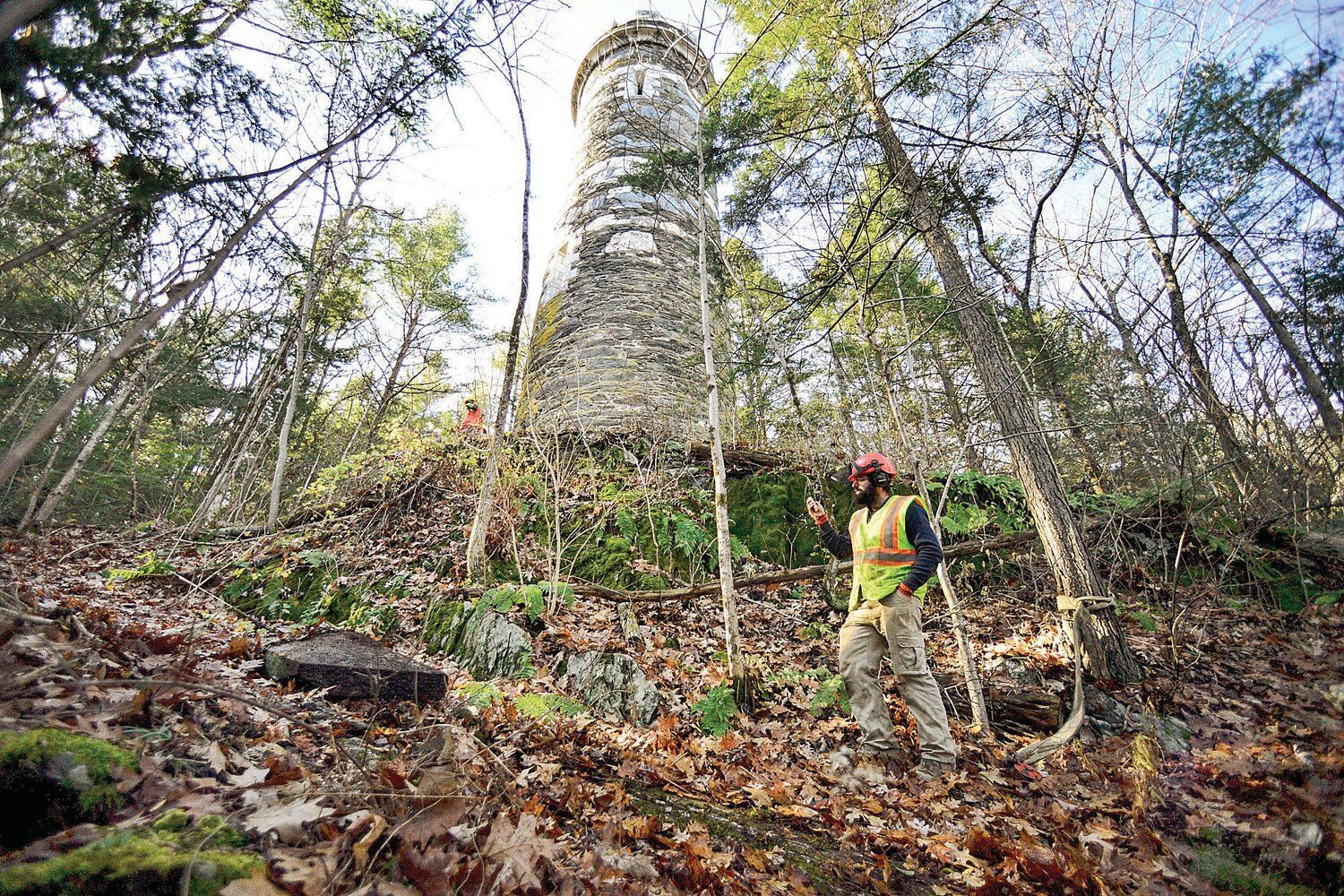
By Kevin O’Connor
History remembers Ross Powers as the first American man to win snowboarding’s Olympic gold medal. But the Vermonter himself recalls a hardscrabble childhood as a prodigy in a sport few had yet to hear of.
“My mom, being a single parent, was sometimes giving up groceries to let me do the local events,” he says.
The resulting story is the stuff of legend: The Londonderry native, riding for fun while his mother stocked the cafeteria at the neighboring Bromley ski area, was 9 when he first competed in the U.S. Open championships at nearby Stratton, 19 when he won a bronze medal at the 1998 Winter Olympics in Nagano, Japan, and 23 when he topped the podium at the 2002 Salt Lake City games.
So much has changed in the nearly four decades since television’s “Today” show joked about winter-weary Vermonters starting to — cue laughter — surfboard on snow. Just ask the sport’s first boy wonder, who, now 38, is a husband, father and snowboard program director at his alma mater, Stratton Mountain School.
“I still can do most of the stuff I used to,” he says, “yet I’m learning some new tricks.”
The Green Mountain State has prided itself on cultivating Winter Olympic champions since its first gold medalist, Rutland skier Andrea Mead Lawrence, landed on the cover of Time magazine in 1952. Back then, training was as simple as afternoon practice on a hometown hill. But today, equipment, schooling, travel and entry fees can cost upward of $40,000 a year.
Powers understands the pressure. Still competing when he’s not coaching, he won the men’s pro division at Stratton’s most recent Vermont Open. His only better recent score: Convincing fellow Olympians like swimmer Michael Phelps to collaborate on a Level Field Fund for aspiring athletes whose talent outpaces their finances.
“I don’t think I was the best when I was a kid,” Powers says, “but I worked harder than anyone else. I believe the more time you put in, the better you’re going to be.”
That’s why the Vermonter who long has inspired his peers is now investing in them, too.

Halfpipe dream
When Powers was born Feb. 10, 1979, a local transplant named Jake Burton Carpenter had burned through $100,000 trying and failing to sell snowboards out of his garage.
People had yet to “surf” cable television or computers, let alone mountains.
That didn’t stop Powers’ mother from giving her 7-year-old a Burton Elite 130 for Christmas. She figured it would occupy the third-grader and his younger brother while she worked at Bromley. Powers immediately took the board outside for a test drive, despite the unseasonably drenching rain.
“I remember only one other skier out there, and some of the people watching me in the windows were laughing,” he says. “But from that day on, that’s what I loved to do.”
By fourth grade, Powers was good enough to compete in the burgeoning sport’s then-biggest event, the U.S. Open (a Stratton staple from 1985 until its move to Vail, Colo., in 2013). His teacher brought his whole class to watch. What they saw and heard was unlike anything in a textbook.
Snowboarding down a halfpipe? No, you’re not sliding on broken plumbing, but instead on a snow-lined canal with curved walls you can shoot up and over. Want to make the grade? Trade old-school thoughts of A, B and C for “amplitude” (height), “rotations” (spins and flips) and “standard airs” (other tricks).
Powers was a quick study.
“My goal was to be a pro snowboarder,” he recalls, “but at that time I didn’t really know what a pro snowboarder was.”
Powers simply figured they had to be successful, since then U.S. Open champ Andy Coghlan could afford to give him a pair of gloves. Patching together similar support from family, fans and business sponsors such as Burton, Powers won his first national title at 15, first world championship at 16 and a bronze medal at 19 when snowboarding made its Olympic debut at the 1998 Winter Games in Japan.

Social Distortion
“When I was there,” Powers says, “I didn’t realize how big the Olympics really were.”
It only hit him when he returned to his hometown of Londonderry, Vt., population 1,769, to see and hear from so many reporters, autograph seekers and long-lost relatives, classmates and friends, he literally had to hide.
And that was just for third place. Four years later, a day after his 23rd birthday, Powers struck gold in Park City, Utah. As the punk band Social Distortion blared on loudspeakers, he started with a then-record straight-up “method” jump (“hanging about 18 feet above the pipe like an astronaut in a zero-G capsule,” the New York Times would report), followed by enough McTwists (540-degree flips) and turns to spin the heads of 16,500 spectators.
“I remember talking to myself, ‘You’ve got to land, you’ve got to land,’” he recalls.
“Everything just worked out.”
Suddenly his sport, once the stuff of rebels, was mainstream hot. Burton’s garage business had grown into the world’s largest snowboard company. Powers, appearing everywhere from David Letterman to the Daytona 500, reaped endorsements from such elite marketers as BMW and Ralph Lauren’s RLX athletic line.
So imagine the surprise when you spot Powers today wearing a no-name sweatshirt in a Stratton Mountain School office that appears as much a dorm room as snowboard program headquarters.
“He is still the same ‘aw-shucks’ Vermont country boy; mild mannered, soft spoken, polite and respectful, that got a free pass to Bromley because his mom worked there,” Snowboarder magazine wrote two years after his gold rush.
That assessment, with a few caveats, still holds true. His time in the spotlight has polished his communication skills. (He says to those who tag him shy: “I just worked hard and let my riding speak for me.”) It also has given him the wattage to illuminate the potential of others.
Surf’s up
Powers rewinds back to the afterglow of his 1998 bronze medal, when he learned of a young Dorset snowboarder named Tyler Emond who had more promise than money. He sent an anonymous donation to cover his schooling, which in turn helped Emond make the U.S. team.
Feeling encouraged himself, the Olympian established the nonprofit Ross Powers Foundation in 2001 and began holding fundraisers for scholarship money. The effort would help the likes of self-described “All-American guy next door” Nick Baumgartner — who went on to beat his benefactor for the last U.S. snowboarding slot at the 2010 Vancouver games.
Powers admits that last loss stung.
“It was hard to come so close and not make it.”
Ever the competitor, he took action. Log onto www.rosspowersfoundation.org today and you won’t see his past offer of assistance anymore. Instead, you’ll learn how he has corralled other Olympians to create an even bigger Level Field Fund for a variety of fledgling winter and summer athletes.
The fund, as noted on the website www.levelfieldfund.org, so far has awarded nearly $500,000 in grants to more than 100 different athletes from 15 different sports.
“Snowboarding definitely changed my life,” Powers says. “But without support, it would have been a lot harder to make it work.”
With a wife, two daughters and full-time job, the Olympian easily could be excused to stay home and rest on his laurels. Instead, he rewinds back to the moment he won gold — and saved the yellow roses he received for his mother.
“Family, friends — this is where I’m from,” he says of his desire to pay it forward. “Sometimes I feel like I’m doing a little too much, but I love everything I’m doing.”
Kevin O’Connor is a Vermont native and Brattleboro Reformer contributor.
